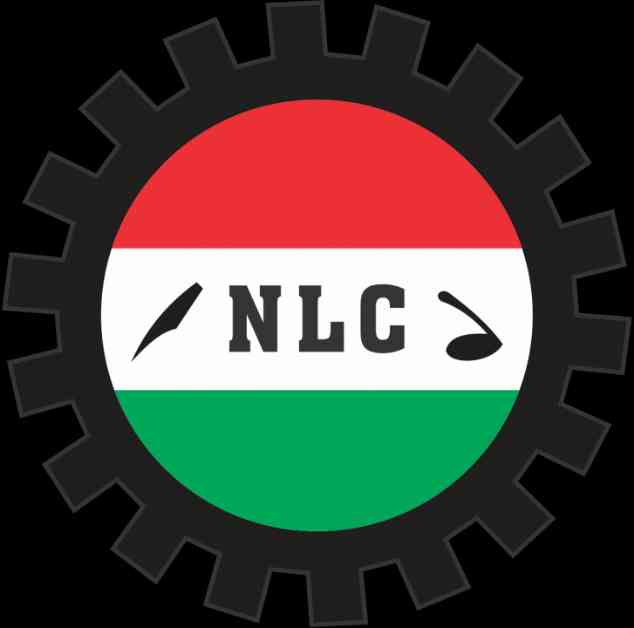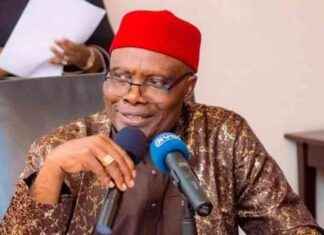Labour Mobilizes Nationwide Protest and Telecom Boycott Against Tariff Hike
In a bold move to challenge the proposed 50 per cent telecom tariff hike announced by the Nigerian Communications Commission on February 4, the Nigeria Labour Congress (NLC) has decided to organize a nationwide protest. This decision was reached during the National Administrative Council meeting of the NLC on January 29, as reported by Globaltimes. The NLC, led by National President Joe Ajaero, expressed deep concern over the implications of the tariff hike on Nigerian workers and the general populace already grappling with economic hardships.
Civil Society Organisations have also rallied behind the NLC in solidarity, pledging their support for the protest. The Civil Society Legislative and Advocacy Centre, National Civil Society Council of Nigeria, and the Take It Back Movement have condemned the tariff hike and vowed to participate in the protests. This united front highlights the widespread discontent and opposition to the telecom tariff increase.
Ajaero, in a statement, emphasized the detrimental impact of the tariff hike on the average Nigerian citizen. He described the decision as insensitive, unjustifiable, and a direct assault on the already burdened population facing economic hardships. The NLC firmly rejected the hike and announced plans for a nationwide protest scheduled for February 4, 2025.
Civil Society Stands in Solidarity
The Civil Society Organisations that have endorsed the rally echoed the sentiments of the NLC, denouncing the tariff hike as exploitative and harmful to the welfare of the Nigerian people. Executive Director of CISLAC, Auwal Musa Rafsanjani, expressed unwavering support for the protest, emphasizing the need to alleviate the economic burdens faced by Nigerians. He underscored the importance of standing with the people against corporate interests that prioritize profits over the well-being of citizens.
Similarly, the Take It Back Movement, through its Director of Mobilisation, Damilare Adenola, affirmed their active participation in the nationwide protests. Adenola highlighted the group’s role in instigating the NLC to take action, signaling their commitment to reversing the tariff hike for the benefit of all Nigerians. This collaboration between civil society groups and labour unions underscores a unified front against exploitative economic policies.
Telecom Operators and Subscribers Push Back
On the opposing end, telecom operators have staunchly defended the tariff hike, arguing that it is essential for maintaining service quality and industry sustainability. The Association of Telecommunications Companies of Nigeria Chairman, Tony Emoekpere, questioned the NLC’s focus on telecom operators, citing price hikes in other sectors that have not faced similar protests. Emoekpere emphasized the necessity of the tariff adjustment to align with service improvements and ensure consumer benefits.
In contrast, the National Association of Telecommunications Subscribers supported the tariff hike but called for a reduction to 10 per cent, urging the NCC to reconsider the decision. The association initiated dialogue with the telecom regulator, which ended in a deadlock, prompting them to consider legal action to challenge the approved tariff increase. This divide between telecom operators and subscribers reflects the complexity of balancing economic interests with consumer welfare.
The National President of ATCIS, Sina Bilesanmi, defended the 50 per cent tariff hike, asserting that it had been finalized following extensive consultations between stakeholders. Bilesanmi dismissed the NLC’s planned protest, emphasizing that the decision had been made collaboratively and was in the best interest of the industry. He urged the NLC to redirect their focus towards advocating for workers’ welfare rather than engaging in disputes over telecom tariffs.
As tensions escalate between labour unions, civil society groups, telecom operators, and subscribers, the looming nationwide protest on February 4 poses a significant challenge to the government and industry stakeholders. The outcome of this confrontation will not only impact telecom services but also set a precedent for future policy disputes and consumer protection measures in Nigeria. The struggle for economic justice and social welfare continues as different voices vie for influence and change in a rapidly evolving landscape.



























